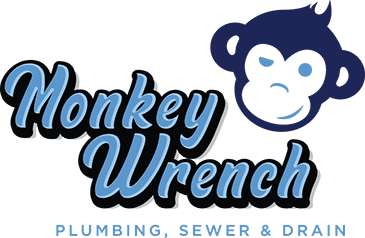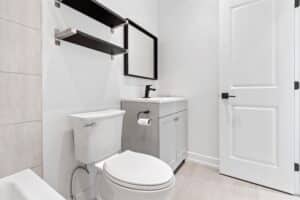Household leaks can cause significant damage if left unchecked, leading to costly repairs and potential health hazards like mold growth. The good news is that many common leaks can be prevented with regular maintenance and a few simple precautions. Here’s how you can protect your home from leaks and keep your plumbing in top shape.
1. Regularly Inspect and Maintain Your Plumbing
Routine inspections are your first line of defense against leaks. Check under sinks, around toilets, and near appliances like dishwashers and washing machines for signs of moisture or water damage.
Action Steps:
- Look for puddles, discoloration, or mold growth.
- Ensure pipes and fittings are secure and free from corrosion.
- Replace worn-out hoses and fittings as needed.
2. Upgrade to Quality Fixtures and Fittings
Cheap or old fixtures are more prone to leaks. Investing in high-quality faucets, showerheads, and pipes can prevent many issues before they start.
Action Steps:
- Replace older fixtures with modern, water-efficient models.
- Opt for stainless steel braided hoses for appliances, which are more durable than rubber.
3. Install Leak Detection Devices
Leak detection devices can alert you to a leak before it causes significant damage. These devices are especially useful in areas where leaks may go unnoticed, such as basements or behind appliances.
Action Steps:
- Install water leak detectors under sinks, near water heaters, and in basements.
- Consider smart water sensors that send alerts to your phone if a leak is detected.
4. Monitor Your Water Pressure
High water pressure can strain your plumbing system and lead to leaks. Installing a pressure regulator can help maintain safe water pressure levels throughout your home.
Action Steps:
- Use a pressure gauge to check your home’s water pressure. Ideal pressure is between 40-60 psi.
- If the pressure is too high, install a pressure-reducing valve.
5. Keep Gutters and Downspouts Clean
Clogged gutters can cause water to overflow and seep into your home’s foundation or walls, leading to leaks. Regularly cleaning your gutters ensures proper drainage and prevents water from backing up.
Action Steps:
- Clean gutters at least twice a year, or more often if you have trees nearby.
- Ensure downspouts direct water away from your home’s foundation.
6. Winterize Your Pipes
In colder climates, frozen pipes are a common cause of leaks. When water freezes, it expands, which can cause pipes to burst. Winterizing your plumbing can prevent this.
Action Steps:
- Insulate exposed pipes, especially in unheated areas like basements and attics.
- During extreme cold, let faucets drip slightly to keep water moving and prevent freezing.
7. Know Where Your Main Water Shut-Off Valve Is
In the event of a major leak, knowing how to quickly shut off your home’s water supply can prevent extensive damage. Familiarize yourself with the location of your main water shut-off valve and how to operate it.
Action Steps:
- Locate your home’s main water shut-off valve, typically found in the basement, garage, or outside.
- Ensure all household members know how to turn it off in an emergency.
Conclusion
Preventing common household leaks is all about vigilance and regular maintenance. By following these tips, you can protect your home from water damage, save money on repairs, and ensure the longevity of your plumbing system. Taking proactive steps today can prevent major headaches in the future, keeping your home safe, dry, and leak-free.

